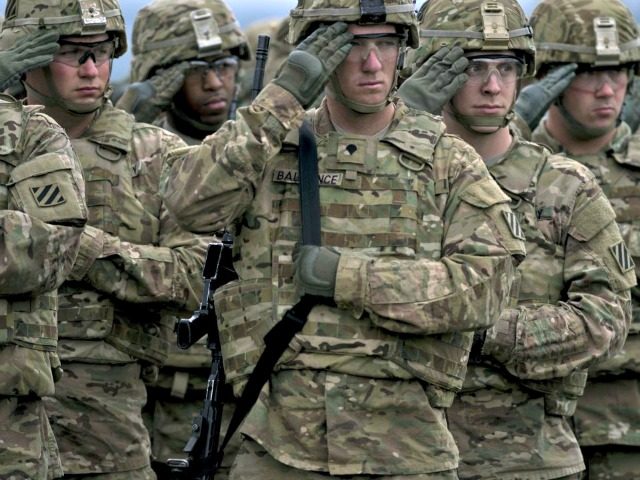Retired U.S. Army Lt. Gen. Sean MacFarland was at an event in Washington this week to discuss his experience training Iraqi and Syrian militaries. But he ended up delivering a warning for the U.S. military: “Identity politics is a cancer.”
It was a surprising comment given that retired generals typically do not weigh in on politics, but also since the topic of his discussion, hosted by the right-leaning American Enterprise Institute, was “Building Better Arab Forces.”
During the discussion, MacFarland spoke of navigating cultural and religious differences in trying to rebuild an Iraqi military in the wake of the Islamic State in Iraq and Syria (ISIS)’s offensive in 2014.
But during the Q and A portion of the discussion, he was asked by an audience member to weigh in on how politics and polarization of the country was affecting the U.S. military.
MacFarland replied:
My last job in the Army — I was the deputy commander for Training and Doctrine Command, so all the recruiting, and all the initial entry training was under Training and Doctrine Command, and it is something that we do focus on. We call it ‘soldierization.’ We assimilate people into the Army, and teach them what it’s like to be part of a cohesive whole.
And many people come from — well soldiers come from all walks of life and we bring them all together, and it’s remarkable that after basic training or their initial training, how acculturated they become. I mean we used to talk about the melting pot in schools in America. I don’t know if we still do anymore. My guess is we don’t.
And I mean I just heard a statistic recently that about 80 percent of American kids consider themselves as just plain old Americans before they enter high school, and about two-thirds of them about halfway through college become hyphenated-Americans.
We remove those hyphens in the Army, in the military. You know, ‘You’re a soldier, next question.’ You know, we all wear the same patch on our right shoulder — the American flag. And that’s what it’s all about.
And that’s a process that most armies do not go really through. You probably don’t have to go through it in some armies where everybody is mono-linguistic, mono-ethnic, or whatever, you know, Finland, or some place like that. But in the United States we do. They should go through it in Arab armies, but they don’t. And that’s a significant difference.
Is it getting harder in the U.S. military to assimilate everybody and get everybody on the same — playing for the same team? Yea, it is. Identity politics is a cancer. And an army is a reflection of its society. And we have seen what Balkanization looks like. I’ve been in the Balkans multiple times and in Afghanistan and Iraq. And it’s a dangerous path that we’ve moving along, and eventually it’s going to become too hard for us to fix in the military.

COMMENTS
Please let us know if you're having issues with commenting.